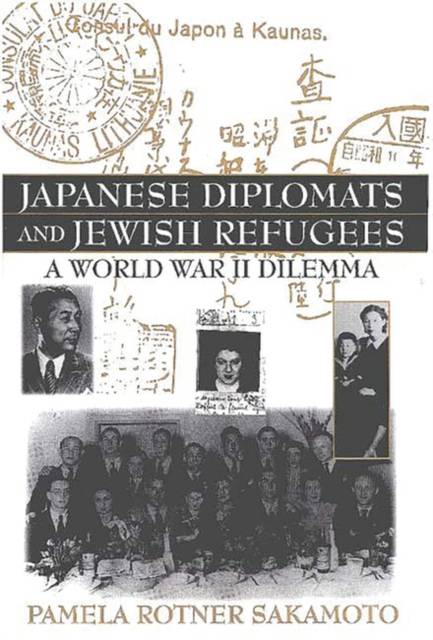
- Retrait gratuit dans votre magasin Club
- 7.000.000 titres dans notre catalogue
- Payer en toute sécurité
- Toujours un magasin près de chez vous
- Retrait gratuit dans votre magasin Club
- 7.000.0000 titres dans notre catalogue
- Payer en toute sécurité
- Toujours un magasin près de chez vous
Description
In the late 1930s and early 1940s, European Jews traveled east to seek refuge in the West. Three thousand refugees transited Japan and China, and more than 21,000 spent the war in Japanese-occupied Shanghai. Japanese diplomats in Europe were caught off guard by the flood of visa applicants, and the Foreign Ministry belatedly confronted a refugee problem. Unexpected visitors became uninvited guests. Vice Consul Sugihara Chiune might have faded into history as a minor diplomat in Lithuania had he not issued thousands of transit visas to refugees, including those who fulfilled few visa requirements. Sakamoto demonstrates how he helped thousands escape Europe; in the end, as she points out, a number of Japanese diplomats saved Jews by issuing visas, but very few issued visas to save Jews.
Sakamoto focuses on the extensive archives of the Ministry of Foreign Affairs, which have not been treated at length before. By examining the cable traffic between diplomats and the ministry headquarters, she reveals the uncensored reactions of Japanese diplomats to Jewish refugees. Through the files of Jewish organizations and the American government, she presents the dimensions of the crisis as Germany's emphasis on emigration changed to extermination. Interviews with former diplomats, refugees, and those who knew Sugihara give human dimensions to a fascinating and little-known episode of the war.Spécifications
Parties prenantes
- Auteur(s) :
- Editeur:
Contenu
- Nombre de pages :
- 216
- Langue:
- Anglais
- Collection :
Caractéristiques
- EAN:
- 9780275961992
- Date de parution :
- 19-11-98
- Format:
- Livre relié
- Format numérique:
- Genaaid
- Dimensions :
- 162 mm x 239 mm
- Poids :
- 521 g

Les avis
Nous publions uniquement les avis qui respectent les conditions requises. Consultez nos conditions pour les avis.






